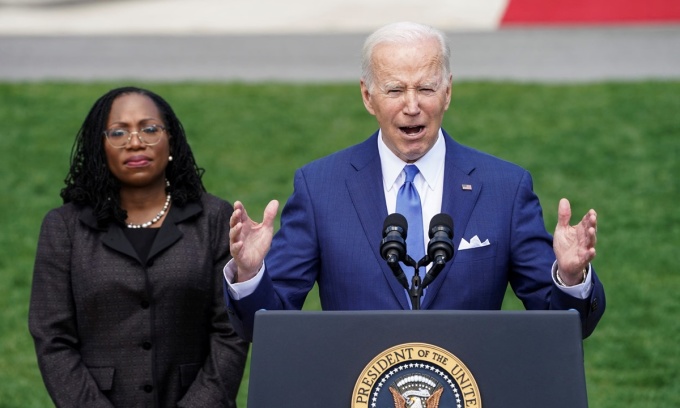
A wave of judges has reversed their retirement plans ahead of President-elect Donald Trump’s inauguration, while Democrats accelerate judicial appointments before President Joe Biden’s term ends.
Three federal judges in the United States recently decided to abandon their plans to retire before Trump returns to the White House. In the U.S. federal court system, it is rare for judges to rescind announcements of "senior status" (a form of semi-retirement that opens their seat for replacement).
Key Republican figures have harshly criticized these decisions, as they deny Trump immediate opportunities to nominate judges aligned with Republican priorities. Legal experts view these actions as part of a broader political struggle to influence the federal judiciary, where lifetime appointments allow judges to shape policy across multiple presidential administrations.
Democrats’ Push to Confirm Judges
Democrats, currently in control of the Senate, have raced to confirm as many of Biden’s judicial nominees as possible since the election. They understand that these nominees will face little chance of confirmation once Republicans reclaim the Senate majority next year and Trump begins making his own nominations.
Two judges were confirmed on December 20, bringing the total number of federal judges appointed by Biden to 235—one more than Trump’s tally during his first term.
The judiciary's influence on American life has grown significantly in recent years as partisan gridlock in Congress has pushed courts to intervene in contentious issues like abortion rights, same-sex marriage, and gender-affirming care.
Federal judges can have nationwide impact by issuing rulings that block presidential executive orders. Appellate courts can overturn lower court decisions and often act as the final arbiter in legal disputes unless the Supreme Court intervenes.
Judges Reversing Retirement Plans
Among the judges reversing their retirement plans is James A. Wynn Jr., 70, who serves on the Fourth Circuit Court of Appeals, which oversees Maryland, North Carolina, South Carolina, Virginia, and West Virginia. In January, Wynn informed the White House he would take senior status once his successor was confirmed. However, on December 13, Wynn announced he would not step down.
Judges Max Cogburn, 73, of North Carolina’s Western District, and Algenon Marbley, 70, of Ohio’s Southern District, also reversed their retirement plans, ensuring Trump cannot replace them in the immediate future.
Senate Minority Leader Mitch McConnell warned that such reversals could lead to "serious ethical complaints." Republican lawmakers and conservative groups have expressed outrage, accusing the judges of politicizing their roles.
Partisan Battles Over Judicial Nominations
Partisan battles over judicial appointments are not new. Both parties have strategically blocked or delayed nominees, with Senate confirmation often becoming a protracted fight.
“Every judicial nomination is a brutal, drawn-out battle. Republicans and Democrats are rallying almost all their members to oppose the other party’s nominees,” said Russell Wheeler of the Brookings Institution.
These battles coincide with a sharp decline in public trust in the federal judiciary. According to a Gallup poll, trust has fallen from 59% to 35% in the past four years, one of the steepest declines globally since Gallup began tracking judicial confidence in 2006. The U.S. now ranks alongside countries like Venezuela and Syria in public trust in the judiciary.
A Stalled Bipartisan Judicial Reform Effort
Earlier this year, bipartisan cooperation resulted in the Judicial Act, which aimed to create 66 new federal judge positions across 13 states over 10 years to address delays caused by overwhelming caseloads.
The Senate passed the bill in August, but it stalled in the House until after the election. When the Republican majority finally brought it to a vote, Biden vetoed the legislation, citing concerns that it would grant Trump the ability to appoint conservative judges to the newly created positions.
Judge Robert Conrad, head of the Administrative Office of the U.S. Courts, criticized the veto as "extremely disappointing," arguing that it would exacerbate backlogs in the judicial system.
Broader Implications
Experts argue that the increasing politicization of judicial nominations reflects deeper polarization in U.S. politics.
“What was once a bipartisan effort to support regions needing more judges has turned into a partisan battle,” Wheeler remarked. “Both parties share blame for this situation.”
(Sources: The Washington Post, AFP, Reuters)
Hello Shuttle will strive to bring the latest updates. At the end of the day.
Are you looking for reliable airport and cruise port transfer services in Los Angeles?
We offer professional, safe, and punctual transportation from
Los Angeles Airport - LAX
Long Beach Airport - LGB
John Wayne Airport - SNA
San Pedro cruise port
Long Beach cruise port
Disneyland
and other destinations.
Let us make your journey stress-free and comfortable with our dedicated drivers and high-quality vehicles. Book now for the perfect travel experience at www.helloshuttle.com or call 944-800-5678!


